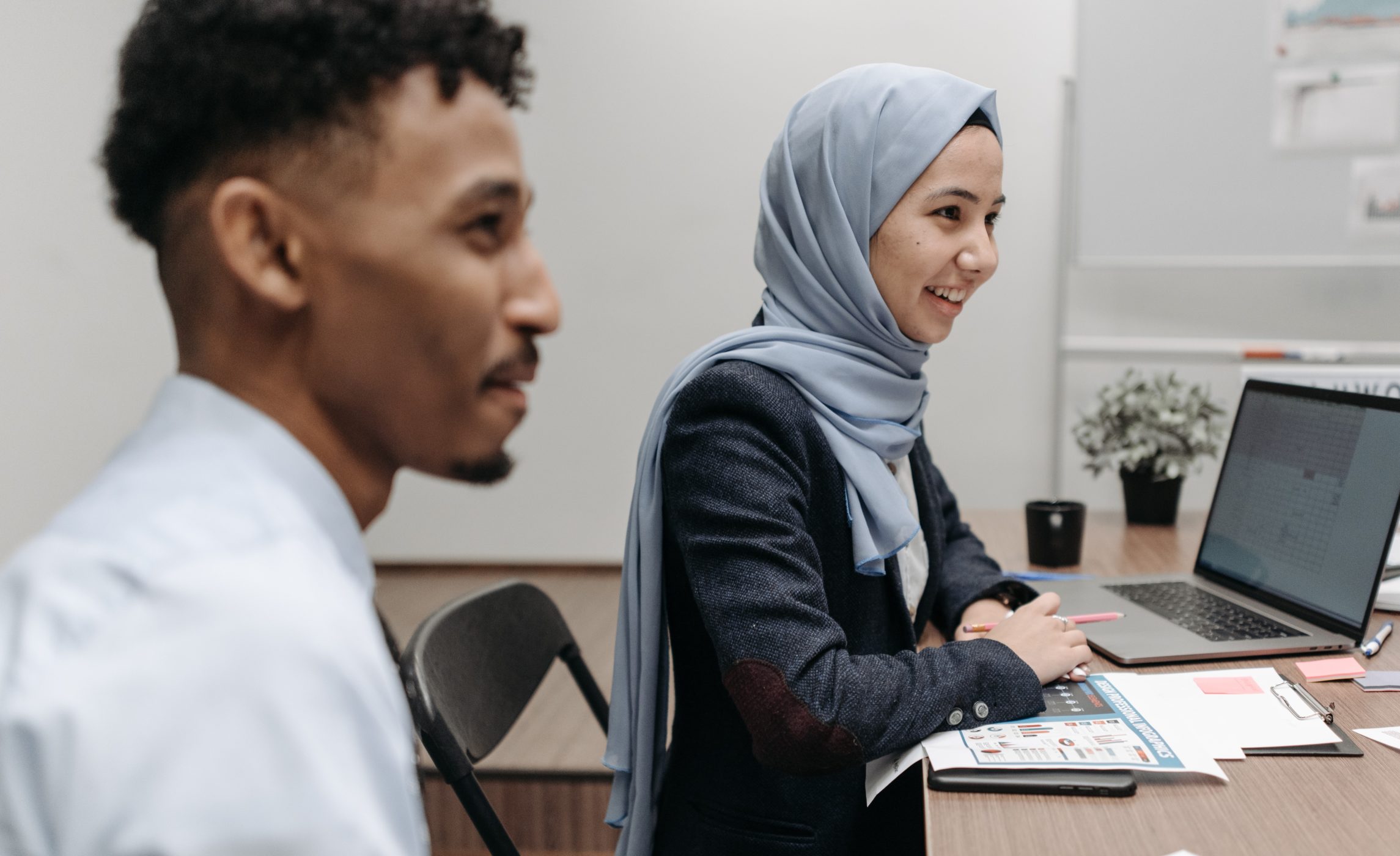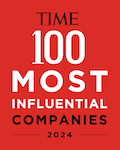PRESS RELEASE: Major Dutch companies double down on support for refugees, pledging to help nearly 22,000 refugees enter the job market

- ABN AMRO, Randstad, Royal FrieslandCampina, and TenneT among 13 leading companies making new and expanded commitments to economically integrate refugees in the Netherlands and across Europe.
- These companies have pledged to hire, train, mentor, and provide employment services for nearly 22,000 refugees.
Amsterdam, April 8 2022 – Against the backdrop of the worst refugee crisis in Europe since World War II, executives from 13 leading companies in the Netherlands, including ABN AMRO, Randstad, Royal FrieslandCampina, and TenneT, announced today new commitments to support refugees’ economic integration in the Netherlands and across Europe.
During the Second Dutch Business Summit on Refugees, co-hosted by the Tent Partnership for Refugees – a network of 220 major businesses committed to supporting refugees around the world – companies in the Netherlands pledged to hire, train, mentor, and provide employment services for nearly 22,000 refugees.
These commitments build on pledges made at the First Dutch Business Summit on Refugees in 2019, which have already led to helping over 13,000 refugees enter the job market through training, mentorship, direct employment, and other activities.
Hamdi Ulukaya, founder of the Tent Partnership for Refugees and CEO of Chobani, a major food company in the U.S. with long-standing experience hiring refugees into its workforce, said: “Dutch businesses continue to lead the way, showing the world that in times of peace as well as in times of crisis, stepping up for all refugees is the right thing to do. As Europe and the Netherlands prepare to welcome our brothers and sisters fleeing war in Ukraine, giving refugees a job is one of the most powerful things companies can do – allowing them to stand on their own two feet, and build a life in a new place they can call home.”
The Netherlands hosts over 100,000 refugees, from countries such as Syria, Afghanistan, and Iraq. Over the past weeks, the country has also welcomed over 21,000 refugees from Ukraine, with this number expected to increase if a resolution to the war isn’t found. Refugees in the Netherlands often face additional challenges to finding jobs, including language barriers, difficulty certifying their credentials, and lack of social connections.
Robert Swaak, CEO at ABN AMRO, said: “ABN AMRO is committed to equal opportunities for all because we believe that everyone, regardless of their background,, religion or lifestyle, has a right to a life of dignity. Unfortunately, refugees don’t yet get a fair chance when entering the job market. At ABN AMRO we know that refugees are an incredible source of talent, and we want to make the most of their skills and expertise. This is why we are committed to continue to hire refugees into our operations — and, by doing this, we are giving them a chance of long-term employment, financial independence; and a life of dignity.”
Hein Schumacher, CEO at Royal FrieslandCampina, said: “At a time when there is such competition for talent, giving refugees a chance to enter the job market benefits the refugees getting a job, but also the companies that are hiring them. We recently made a cash and in-kind donation in excess of EUR 1.3 million to support displaced people. However, there is so much more that we, as a leading business, can do — by recognizing and harnessing the passion and expertise of refugee talent. At FrieslandCampina, we believe this is simply a good business practice and the right thing to do.”
Chris Heutink, Executive Board Member at Randstad, said: “More than 4 million people have now fled the war in Ukraine, abandoning their homes, jobs and lives for an uncertain future. We know how crucial providing employability support can be for those resettling in a new country, which is why we are proud to pledge to support thousands more refugees and help provide security, dignity and independence to those that need it the most.”
Manon van Beek, CEO at TenneT, said: “It is my deep conviction that diversity makes a business stronger. As one of the companies facilitating Europe’s energy transition, we have many positions to fill at TenneT. In times when the labor market is tight, hiring refugee talent is a win-win solution – TenneT is building a diverse and talented workforce, and refugee talent can find meaningful work at our company.”
The Second Dutch Business Summit on refugees featured the following commitments:
- ABN AMRO will hire and train 60 refugees over three years, and will offer its refugee employees one-year of coaching and training focused on personal development, cultural acclimatization, and organizational values. This commitment builds on ABN AMRO’s 2019 commitment through which the company has already hired 80 refugees. In addition, for at least the next two years, ABN AMRO will offer refugee entrepreneurs the opportunity to pitch ideas to its private banking clients in hopes of securing funding, mentorship, or coaching support.
- Arcadis will hire 65 refugees across Europe over three years. Arcadis will do this through an internship program that provides training and coaching to help refugees adjust to their new working environment. At the end of the internship program, the best-suited refugee candidates will be offered a job with Arcadis. This commitment expands on a 2019 commitment through which Arcadis has successfully hired 56 refugees. Arcadis will also encourage its suppliers, vendors, clients, and investors, to hire refugees who successfully complete the Arcadis internship program.
- Deloitte will hire 25 refugees in the Netherlands over five years. Deloitte will also provide training and internships to a number of the refugees who participate in Microsoft’s Azure Academy, and will continue to provide web-development training to refugees via its partnership with the NGO Hack Your Future. In addition, Deloitte will mentor 20 refugees this year as part of its Future Academy, and intends to reach 100 refugees with mentorship over five years.
- Dura Vermeer will train, mentor and hire at least 20 refugees over two years at the company and in its network. Dura Vermeer will also encourage its suppliers to train and hire refugees into their workforces. This commitment expands on its 2019 commitment through which Dura Vermeer successfully helped place 75 refugees in jobs.
- IKEA will offer internships to an additional 90 refugees in the Netherlands over two years. Via its Skills for Employment program, IKEA has already offered internships to 60 refugees in the Netherlands, providing them with work experience and language training to better integrate into the labor market.
- ManpowerGroup will connect 800 refugees to employment opportunities in the Netherlands over two years, with a specifc focus on helping refugee women and LGBTQ refugees find meaningful work. This commitment builds on ManpowerGroup’s 2019 commitment through which it has connected 400 refugees to jobs. ManpowerGroup will also offer mentorship to 50 LGBTQ refugees in the Netherlands over three years.
- Microsoft will help reskill and support 200 refugees to enter the information and communication technology (ICT) job market in the Netherlands over three years. It will do this through its Azure Academy and other training programs, which equip refugee job-seekers with the skills, formal credentials, and connections to its customers and partners, to help them succeed as Azure IT and Cloud professionals.
- PepsiCo North West Europe will hire or provide internships across its offices and production facilities to 30 refugees across the Netherlands, Belgium, and Nordics over five years. PepsiCo North West Europe will do this by partnering with NGOs, including the Refugee Talent Hub in the Netherlands, and will host recruitment events for refugee job candidates.
- Philips will hire 75 refugees across its operations, including in the Netherlands, Germany, Turkey, Poland, Costa Rica, and Panama by 2025. This commitment expands on its 2019 commitment through which Philips has already hired 75 refugees across its operations. By 2025, Philips will have hired 150 refugees. Philips will also continue its career workshops and soft-skills training programs for refugees. In addition, Philips will mentor 50 refugee women in Germany, the Netherlands, and the United Kingdom over three years.
- The Philips Foundation is providing refugees with access to quality healthcare through a number of initiatives, including by supporting refugees from Ukraine in Poland, Romania, and Czech Republic with acute and emergency healthcare, and financial support.
- Rabobank will hire 50 refugees in the Netherlands over three years. This builds on its 2019 commitment through which Rabobank has already hired 60 refugees. Rabobank will also give refugees an opportunity to participate in the Refugee Talent Hub’s Finance Academy, which provides training about what it is like to work in the financial sector in the Netherlands, and gives refugee participants mentorship opportunities.
- Randstad will provide job support to 20,000 refugees over three years through upskilling and reskilling, as well as job matching and placements in countries like Argentina, Australia, Belgium, Canada, Germany, Italy, the Netherlands, Poland, Portugal, and Sweden. This commitment builds on Randstad’s 2019 commitment through which the company has helped almost 11,000 refugees find job opportunities. Randstad will also explore opportunities to expand its refugee programs to new markets, including in the Czech Republic, Spain, the United Kingdom, and the United States.
- Royal FrieslandCampina (RFC) will hire 50 refugees over three years across its European operations, accounting for two percent of anticipated open positions in the Netherlands. RFC will also provide training via its NGO partners for up to 200 refugees, helping them with CV writing, interview techniques, and creating LinkedIn profiles. In addition, RFC will mentor at least 100 refugees in the Netherlands and in other European countries, including Belgium, Germany, and the United Kingdom over three years.
- TenneT will hire 40 refugees and offer six traineeships in the Netherlands over five years. TenneT will provide its refugee employees with individualized coaching and training focusing on Dutch business culture. In Germany and in the Netherlands, TenneT will also facilitate apprenticeships to help refugees find employment.
In addition to the commitments above, Netflix, NN Group, TomTom, Roland Berger, have joined the Tent Partnership for Refugees, pledging to explore ways they can hire and train refugees.
A complete list of progress updates of 2019 commitments can be found here.
– Ends –
APPENDIX: ADDITIONAL QUOTES
Ruth Harper, Chief Communications & Sustainability Officer at ManpowerGroup, said: “We continue to be inspired by refugees’ resilience, dedication, and hard work. Having helped tens of thousands of refugees around the world access job opportunities, ManpowerGroup is more committed than ever to expanding and accelerating our work with refugees, especially in light of the Ukraine crisis. We are working with global and local experts, our clients, and NGOs to ensure we can make an impact fast for as many refugees as we can, giving them pathways to jobs in the Netherlands and around the world.”
Media enquiries:
Omnicom PR Group, on behalf of Tent Partnership for Refugees: [email protected]
- Nathalie Schuijlenburg: +31 (0)6 41 77 23 61
- Roos van Putten: +31 (0)6 41 03 96 08
- Jade Roelands: +31 (0)6 54 35 53 00
About the Tent Partnership for Refugees
With more and more refugees displaced for longer periods of time, businesses have a critical role to play in helping refugees integrate economically in their new host communities. The Tent Partnership for Refugees mobilizes the global business community to improve the lives and livelihoods of 30 million refugees who have been forcibly displaced from their home countries. Founded by Chobani’s founder and CEO Hamdi Ulukaya in 2016, we are a network of over 220 major companies committed to including refugees. Tent believes that companies can most sustainably support refugees by leveraging their core business operations – by engaging refugees as potential employees, entrepreneurs and consumers. The full list of Tent members can be found here. Find out more at www.tent.org.
 Tent Named to TIME100 Most Influential Companies List
Tent Named to TIME100 Most Influential Companies List